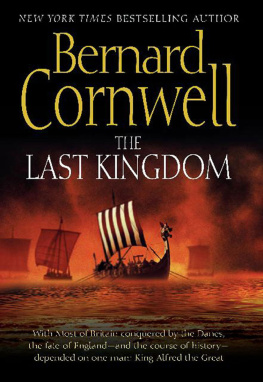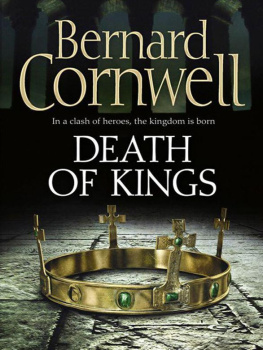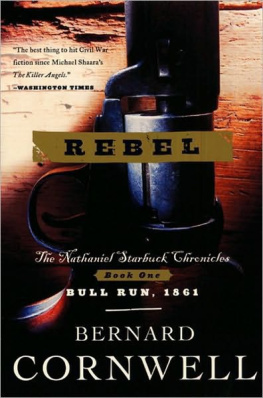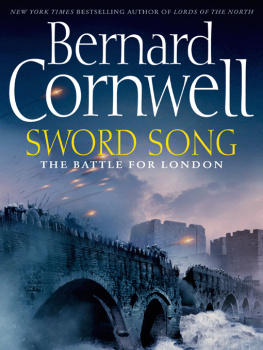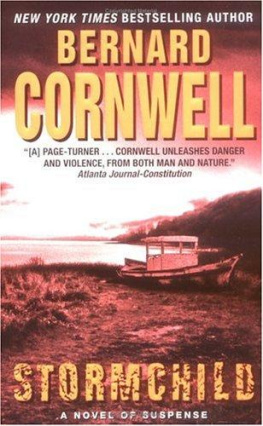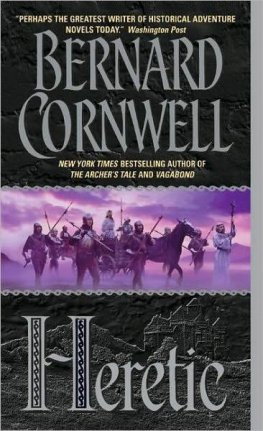Bernard Cornwell - The Empty Throne
Here you can read online Bernard Cornwell - The Empty Throne full text of the book (entire story) in english for free. Download pdf and epub, get meaning, cover and reviews about this ebook. year: 2014, genre: Art. Description of the work, (preface) as well as reviews are available. Best literature library LitArk.com created for fans of good reading and offers a wide selection of genres:
Romance novel
Science fiction
Adventure
Detective
Science
History
Home and family
Prose
Art
Politics
Computer
Non-fiction
Religion
Business
Children
Humor
Choose a favorite category and find really read worthwhile books. Enjoy immersion in the world of imagination, feel the emotions of the characters or learn something new for yourself, make an fascinating discovery.
- Book:The Empty Throne
- Author:
- Genre:
- Year:2014
- Rating:4 / 5
- Favourites:Add to favourites
- Your mark:
- 80
- 1
- 2
- 3
- 4
- 5
The Empty Throne: summary, description and annotation
We offer to read an annotation, description, summary or preface (depends on what the author of the book "The Empty Throne" wrote himself). If you haven't found the necessary information about the book — write in the comments, we will try to find it.
The Empty Throne — read online for free the complete book (whole text) full work
Below is the text of the book, divided by pages. System saving the place of the last page read, allows you to conveniently read the book "The Empty Throne" online for free, without having to search again every time where you left off. Put a bookmark, and you can go to the page where you finished reading at any time.
Font size:
Interval:
Bookmark:
For Peggy Davis
Contents
The spelling of place-names in Anglo-Saxon England was an uncertain business, with no consistency and no agreement even about the name itself. Thus London was variously rendered as Lundonia, Lundenberg, Lundenne, Lundene, Lundenwic, Lundenceaster and Lundres. Doubtless some readers will prefer other versions of the names listed below, but I have usually employed whichever spelling is cited in either the Oxford Dictionary of English Place-Names or the Cambridge Dictionary of English Place-Names for the years nearest or contained within Alfreds reign, AD 871899, but even that solution is not foolproof. Hayling Island, in 956, was written as both Heilincigae and Hglingaigg. Nor have I been consistent myself; preferring the modern form Northumbria to Norhymbralond to avoid the suggestion that the boundaries of the ancient kingdom coincide with those of the modern county. So this list, like the spellings themselves, is capricious.
Abergwaun | Fishguard, Pembrokeshire |
Alencestre | Alcester, Warwickshire |
Beamfleot | Benfleet, Essex |
Bebbanburg | Bamburgh Castle, Northumberland |
Brunanburh | Bromborough, Cheshire |
Cadum | Caen, Normandy |
Ceaster | Chester, Cheshire |
Cirrenceastre | Cirencester, Gloucestershire |
Cracgelad | Cricklade, Wiltshire |
Cumbraland | Cumbria |
Defnascir | Devonshire |
Eoferwic | York |
Eveshomme | Evesham, Worcestershire |
Fagranforda | Fairford, Gloucestershire |
Fearnhamme | Farnham, Surrey |
Gleawecestre | Gloucester, Gloucestershire |
Lundene | London |
Lundi | Lundy Island, Devon |
Mrse | River Mersey |
Neustria | Westernmost province of Frankia, including Normandy |
Sfern | River Severn |
Scireburnan | Sherborne, Dorset |
Sealtwic | Droitwich, Worcestershire |
Teotanheale | Tettenhall, West Midlands |
Thornsta | Dorset |
Tyddewi | St. Davids, Pembrokeshire |
Wiltunscir | Wiltshire |
Wintanceaster | Winchester, Hampshire |
Wirhealum | The Wirral, Cheshire |
My name is Uhtred. I am the son of Uhtred, who was the son of Uhtred, and his father was also called Uhtred. My father wrote his name thus, Uhtred, but I have seen the name written as Utred, Ughtred or even Ootred. Some of those names are on ancient parchments which declare that Uhtred, son of Uhtred and grandson of Uhtred, is the lawful, sole and eternal owner of the lands that are carefully marked by stones and by dikes, by oaks and by ash, by marsh and by sea. That land is in the north of the country we have learned to call Englaland. They are wave-beaten lands beneath a wind-driven sky. It is the land we call Bebbanburg.
I did not see Bebbanburg till I was grown, and the first time we attacked its high walls we failed. My fathers cousin ruled the great fortress then. His father had stolen it from my father. It was a bloodfeud. The church tried to stop the feud, saying the enemy of all Saxon Christians was the pagan Northmen, whether Danish or Norse, but my father swore me to the feud. If I had refused the oath he would have disinherited me, just as he disinherited and disowned my older brother, not because my brother would not pursue the feud, but because he became a Christian priest. I was once named Osbert, but when my elder brother became a priest I was given his name. My name is Uhtred of Bebbanburg.
My father was a pagan, a warlord, and frightening. He often told me he was frightened of his own father, but I cannot believe it because nothing seemed to frighten him. Many folk claim that our country would be called Daneland and we would all be worshipping Thor and Woden if it had not been for my father, and that is true. True and strange because he hated the Christian god, calling him the nailed god, yet despite his hatred he spent the greatest part of his life fighting against the pagans. The church will not admit that Englaland exists because of my father, claiming that it was made and won by Christian warriors, but the folk of Englaland know the truth. My father should have been called Uhtred of Englaland.
Yet in the year of our Lord 911 there was no Englaland. There was Wessex and Mercia and East Anglia and Northumbria, and as the winter turned to a sullen spring in that year I was on the border of Mercia and Northumbria in thickly wooded country north of the River Mrse. There were thirty-eight of us, all well mounted and all waiting among the winter-bare branches of a high wood. Beneath us was a valley in which a small fast stream flowed south, and where frost lingered in deep-shadowed gullies. The valley was empty, though just moments before some sixty-five riders had followed the stream southward and then vanished where the valley and its stream turned sharply west. Not long now, Rdwald said.
That was just nervousness and I made no answer. I was nervous too, but tried not to show it. Instead I imagined what my father would have done. He would have been hunched in the saddle, glowering and motionless, and so I hunched in my saddle and stared fixedly into the valley. I touched the hilt of my sword.
She was called Raven-Beak. I suppose she had another name before that because she had belonged to Sigurd Thorrson, and he must have given her a name though I never did find out what it was. At first I thought the sword was called Vlfberht because that strange name was inscribed on the blade in big letters. It looked like this:
VLFBERHT
But Finan, my fathers friend, told me that Vlfberht is the name of the Frankish smith who made her, and that he makes the finest and most expensive blades in all Christendom, and it must be Christendom because Vlfberht puts the crosses in front of and inside his name. I asked Finan how we could find Vlfberht to buy more swords, but Finan says he is a magic smith who works in secret. A blacksmith will leave his furnace for the night and return in the morning to find that Vlfberht has been in the smithy and left a sword forged in the fires of hell and quenched with dragons blood. I called her Raven-Beak because Sigurds banner had shown a raven. She had been the sword Sigurd carried when he fought me and when my seax had ripped his belly open. I remember that sword-stroke so well, remember the resistance of his fine mail suddenly giving way and the look in his eyes as he realized he was dying and the elation I felt as I dragged the seax sideways to empty his lifeblood. That had happened in the previous year at the battle at Teotanheale which had driven the Danes out of central Mercia, the same battle in which my father had killed Cnut Ranulfson, but in killing Cnut he had been wounded by Cnuts sword, Ice-Spite.
Raven-Beak was a good sword, I thought her even better than Serpent-Breath, my fathers blade. She was long-bladed, but surprisingly light, and other swords broke against her edge. She was a warriors sword, and I carried her that day in the high wood above the frosted valley where the stream ran so fast. I carried Raven-Beak and my seax, Attor. Attor means venom and she was a short-sword, good for the crowded work of a shield wall. She stung, and it was her venom that had killed Sigurd. And I carried my round shield on which was painted the wolfs head, the emblem of our family. I wore a helmet crested with a wolfs head, and a coat of Frankish mail above a leather jerkin, and above it all a cloak of bear fur. I am Uhtred Uhtredson, the true lord of Bebbanburg, and I was nervous that day.
Next pageFont size:
Interval:
Bookmark:
Similar books «The Empty Throne»
Look at similar books to The Empty Throne. We have selected literature similar in name and meaning in the hope of providing readers with more options to find new, interesting, not yet read works.
Discussion, reviews of the book The Empty Throne and just readers' own opinions. Leave your comments, write what you think about the work, its meaning or the main characters. Specify what exactly you liked and what you didn't like, and why you think so.

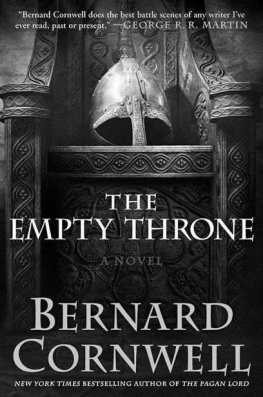
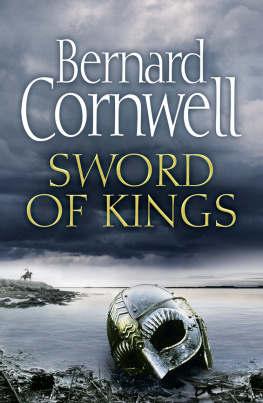

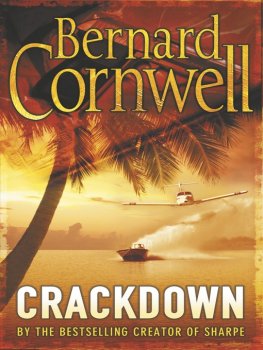
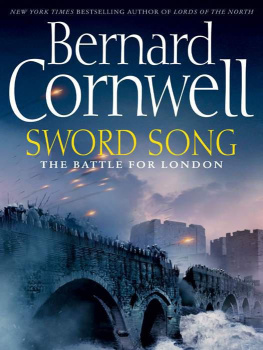
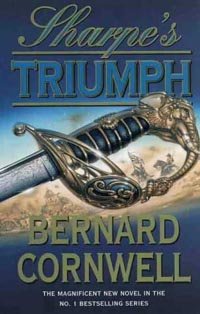
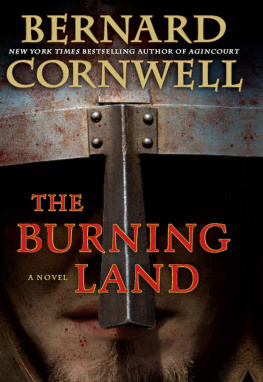
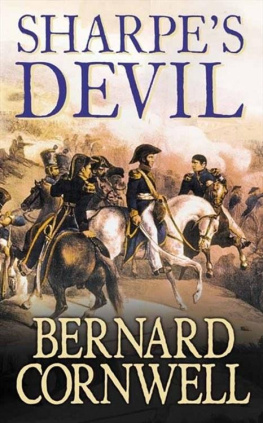
![Bernard Cornwell - The Grail Quest - The Archer’s Tale / Vagabond / Heretic [ATBC]](/uploads/posts/book/131313/thumbs/bernard-cornwell-the-grail-quest-the-archer-s.jpg)

